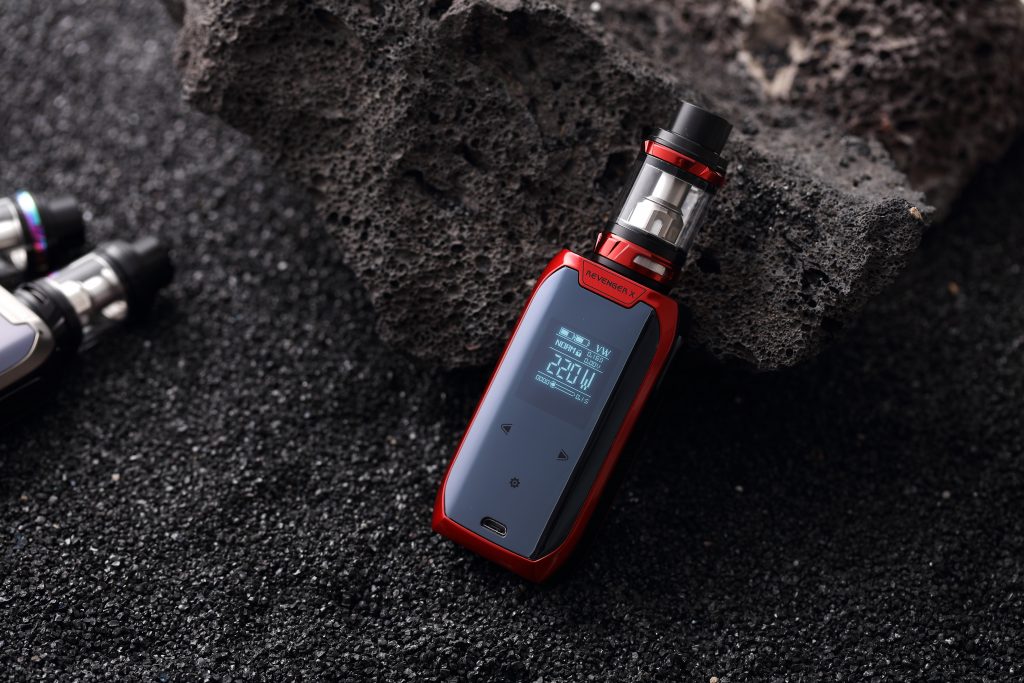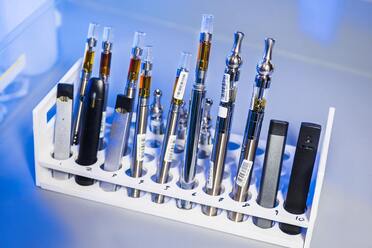Your Teen Is Vaping, Smoking, and Experimenting: How to Navigate These times as Parents.
“I discovered my teen is vaping experimenting with smoking (weed, etc). What do I do!?”
This is a question several parents have been asking me lately, after finding rolling papers, vape paraphernalia and messages on their teen’s phone indicating they might be experimenting.
How do you address this issue? How do you parent around this without freaking out or going worse case scenario?
Don’t get me wrong, I’m super aware of the potential consequences surrounding substance use for teens and it is definitely something to pay attention to.
I also know if I confront my teen guns blazing and panicking, I will shut them down from trusting me and ever opening up around these situations. If you are a little unsure here, you are not alone.
Read on to check out how you can navigate these situations going forward.

Photo by Priscilla Du Preez on Unsplash
My Teen is Vaping: Start A Conversation
People have different values and beliefs when it comes to substance use and experimenting with drugs and alcohol. Factors that influence your response may depend on who, when, where and under what circumstances.. A lot of parents hope their teens just won’t try any of it at all.
It’s really important to address this, no matter what your beliefs or values are. I highly encourage open discussions about it with your teen. Not always easy for sure, and sometimes met with blank stares and silence. Share your expectations regarding this issue. Where do you stand on cigarette use, vaping, alcohol, drugs? Do you have hard lines on things? Do you want them to come to you if they are in a tricky situation?
Finding a message (or paraphernalia) that indicates your teen is experimenting can send you into a crisis mode tailspin. Before you let fear take over, consider this an opportunity (of many) to have a conversation with your teen where you can start becoming clear on where you stand with your values around substance use, and your expectations for your teen when it comes to experimenting.
If you’re co-parenting, this is also a great time to get on the same page (or at least in the same chapter!) as your co-parent.
This will not be a one and done conversation – you will want to think about it as multi-layered:
1. Responding to the situation that’s happening in the moment (e.g. finding the vape pod) How are you going to deal with this as a family and as the parent?
2. The long game conversations. How are you going to handle these issues going forward? What are your expectations around their use and how can you support the likelihood of them making choices in favor of their wellness most of the time?
3. Keeping the relationship at the foundation. How do you make it about the behaviour and not the person? How do you get the messages across around expectation and hold as a priority that you are there for them with unconditional love regardless of mistakes and choices made?

Photo by Gras Grun on Unsplash
My Teen is Vaping: Understanding Why
Conversations around substance use can be awkward and difficult. They can often seem very one sided. However, Understanding why your teen is experimenting with substances is a really important piece.
The more you can put out an invitation for your teen(s) to be open and let you know what’s going on, the better. Let curiosity take the lead here if you can. Let them know that the stakes are not super high in exchange for their honesty. That doesn’t mean you’re condoning their behaviour or that there won’t be consequences for the behaviour… It is just being clear with your teen that opening up around why they are experimenting, is a place of you trying to understand and not that they will be punished for speaking their truth.
It’s a bit of a tricky balance.
Here are some of the reasons why teens may be experimenting:
Curiosity and Experimentation.
Teen brains are seeking dopamine, which is the body’s natural chemical related to the pleasure/reward system. They will seek things that are thrilling and exciting to them that will boost dopamine levels. You will see higher risk behaviours. It’s just the way it is. This is part of the process of an adolescent becoming an adult.
Some teens have channeled this into a sport or an activity that they do (mountain biking, playing an instrument, doing things with friends that are more exciting etc.) All of these things are ways to increase dopamine. Various drugs will increase dopamine the brain making them alluring to some.

Photo by Yasin Yusef on Unsplash
Pressure/Stress.
Some teens will turn to certain behaviours to avoid, or get rid of unpleasant thoughts and feelings – things like self-harm, contemplating suicide, diving deep into distraction as a way to avoid the thoughts and feelings, or using substances that alter some of their brain chain reactions. Of course, there can be negative long term side effects to some of these choices. But, at the moment they can seem helpful; they give temporary relief.
Peer/Social Pressure.
If teens are in an environment or spending time with people who are exploring and using substances there’s sure to be a certain amount of peer pressure. A sense of belonging – important for humans in general – is heightened for adolescents that are in identity formation; they are really trying to find who their people are.
Push Back.
Teens are in the process of becoming more independent and gaining autonomy from their family of origin. This can look many different ways, including using substances as part of pushing back against family rules, values, and beliefs. If the teen’s family is highly against trying substances, then part of the experimentation could be a teen pushing against this. (Please know I say this part with no judgement whatsoever for your belief system around substances).
Modelling.

Photo by dole777 on Unsplash
If a teen has a parent or adults in their world who are using substances recreationally or as a way of coping and living their daily life, it can model particular behaviours for teens.
Social Media.
Teens are constantly exposed to images and messages around substances on various social media platforms. Whether that’s prescription medications, vaping, drinking – it’s everywhere. There’s a lot of influence there.
Boredom.
Similar to avoiding the feelings of stress with substances, some teens will experiment as a way to relieve boredom temporarily .
Self-Medicating.
Teens may have an underlying mental health and other condition that is unmanaged leading them to using substances.
Lack of Information.
Teens may truly not understand the risks and consequences are, how it affects the brain, or what is in certain substances.

Photo by Glenn Carstens on Unsplash
My Teen is Vaping: Educate Yourself and Your Teen
Understanding more about what your teen is experimenting with is important for you, and them. What are they using? What are the impacts? What information or resources are available?
As parents, we need to be informed when our teen is vaping. And in fact our teens can be helpful resources. In conversation with them, we can begin to understand what their peer groups are using, how many of the kids are experimenting, and some of the slang words for things.
It’s also important to gather your own information . You can check out different resources, websites, articles, podcasts, videos and you can even share some of what you learn with your teen. Here are a few resources to get you started:
- Kids Health
- National Institute on Drug Abuse
- Ask Alice is a website run by Columbia University health professionals that have brought their information together to answer a lot of health based questions. You can find information about lots of different topics, from sexual health to substance abuse and many other things.
- Drug Free Kids Canada has many tools available, including how to have a conversation around substance use.
When your teen is vaping, help them find meaning and excitement in other activities in their lives (e.g. a group, club, sport, key friendships, volunteer or community opportunities, new interests, etc.)
You may decide that some external support to communicate with your teen around these issues would be beneficial or that it could be helpful for your teen to have someone to talk to. Reach out and find a therapist who focuses on supporting teens. If you’re wanting to reach out, you can book a free consultation with me here to see if I am a good fit for your teen.
Love,
Chantal
 Chantal Côté (she/her) is a psychologist and teen life coach living in Calgary, Alberta. After over a decade in non-profit and community mental health, Chantal started Pyramid Psychology, a practice dedicated to supporting teens – a population she is constantly amazed by. Chantal is on a mission to help 100,000 teen girls (and their parents) build bulletproof mindsets so they can weather the ups and downs of life. As part of this goal, Chantal has had the privilege of speaking at various events – virtual and live – to support teens and parents.
Chantal Côté (she/her) is a psychologist and teen life coach living in Calgary, Alberta. After over a decade in non-profit and community mental health, Chantal started Pyramid Psychology, a practice dedicated to supporting teens – a population she is constantly amazed by. Chantal is on a mission to help 100,000 teen girls (and their parents) build bulletproof mindsets so they can weather the ups and downs of life. As part of this goal, Chantal has had the privilege of speaking at various events – virtual and live – to support teens and parents.
Outside of this passion, Chantal is often in nature, writing poetry, playing ball hockey and hanging out with her loved ones.
Each week, Chantal writes a blog article in response to issues she hears from the parents and teens she connects with. If you have something you’d like to read more on – email ideas and questions to info@pyramidpsychology.com or DM us via Instagram or Facebook.














